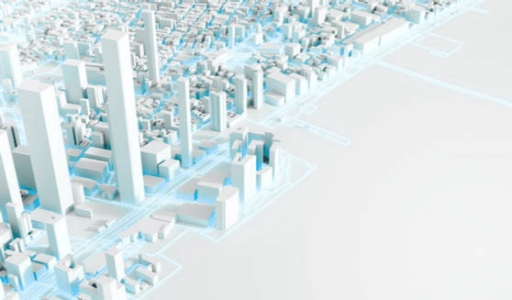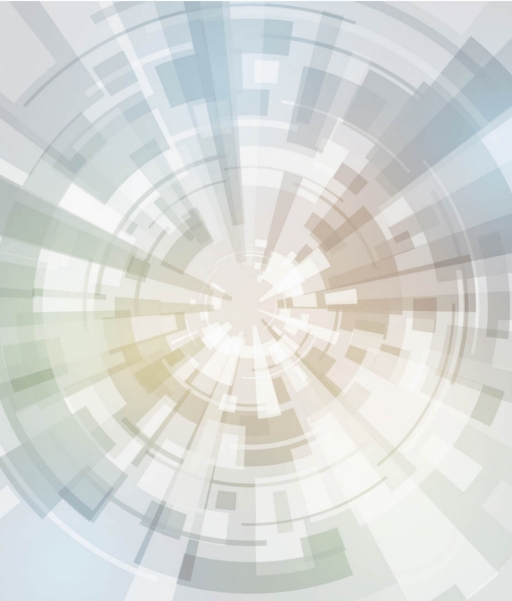
Why sustainability is the heart of the smart city revolution
The smart cities of the future will use tech to lower emissions, cut urban temperatures, and improve quality of life in highly populated areas.


By 2025 there will be an estimated 41.6 billion connected devices in the world, according to market research company International Data Corporation (IDC). That’s five devices for every single human on the planet. The repercussions of such a statistic are far-reaching.
The Internet of Things (IoT) – essentially the connection of machines and everyday objects to the internet – has the potential to reshape our understanding of how businesses, societies and even countries function. It also provides us with the opportunity to face the challenges of climate change and urbanisation head on and to create smarter and smarter cities.
Much of this is already underway, of course, and it is our smartphones that allow us to access much of what is already possible. They host the apps that help us control or monitor the world around us, enabling the creation of smarter homes and the more efficient use of resources. Lighting, heating and security devices can monitor and protect our homes; wearable devices is tracking our health and wellbeing; and technology is allowing us to access information about everything from traffic congestion to air pollution in real time. IoT applications are now widespread in many areas of our lives.

Yet the IoT is about far more than simply making our lives easier, safer and healthier. It’s about the creation of smart cities via networks of connected sensors, lights and meters. It’s about technology that can not only re-route traffic, but help improve infrastructure and intelligently manage power consumption, as well as improve manufacturing and industrial processes using IIoT, Industrial Internet of Things.
In London, smart parking initiatives are guiding drivers to vacant spaces; in Copenhagen, traffic sensors are prioritising the flow of buses and bicycles over cars: and in Santander, the city’s smart irrigation system is only being activated when monitors sense the soil in public parks is dry. All of this is possible with advanced IoT sensors that enable the creation of smart cities.
It is this eclectic use of the IoT that will be a central focus of LEAP, the country’s biggest tech festival. A series of Smart City Orbital Talks in February 2022 will look at how to build sustainable smart cities, the intelligent solutions needed to improve the safety, health and well-being of residents, and the benefits brought to city management and urban planning by the IoT.
At the heart of it all lies data, which is not only helping consumers and companies manage resources, but is enabling governments to provide services more efficiently. This in turns enables improved decision making and the better utilisation of a city’s resources. All of which has the potential to revolutionise nearly every aspect of our lives, with the combination of smart cities, the IoT and wearable tech ultimately creating smart nations.
“As the prevalence and adoption of automation and computer systems continues to expand to every aspect of our lives, we are able to create ever higher understanding of the physical world and processes around us in a real time manner,” says Harj Dhaliwal, Managing Director for the Middle East and India at Virgin Hyperloop. “From a transportation perspective, whether that be hyperloop or autonomous cars, digital systems managing our daily interactions will be generating massive amounts of data that can enable new applications for machine learning and optimisation of the world we live in.”
Management consultancy firm McKinsey has predicted the IoT will boost global economic growth by as much as $11.1 trillion a year by 2025. Regionally, IDC anticipates IoT spending in the Middle East and Africa could reach $17.63 billion by 2023 as governments and businesses increase their investments in digital transformation. The expansion of IoT in industry and daily life is proving to be essential for national growth globally.
Some of the biggest spenders, according to global research and advisory firm Gartner, will be utility companies as they continue – or begin – to roll out smart meters in their respective fields and countries. In Saudi Arabia, the Saudi Electric Company successfully installed 10 million smart meters by April this year, four million of which were built from locally manufactured components, further expanding the use of IoT in industry.

In the GCC, the development of IoT capabilities is closely linked to government smart city projects. In Saudi Arabia, NEOM, a $500 billion destination being built on the Kingdom’s Red Sea coast, will utilise the IoT to help build ‘cognitive cities’. Replete with robots, biotechnology and advanced manufacturing, the project aims to design a model of future living, with IoT technologies at the heart of it.
Leading Dubai’s IoT initiatives is the Smart Dubai Office, which is accelerating the deployment of IoT-based smart solutions and leveraging a citywide partner network to deliver increased efficiencies. Such investments are designed to help the environment, enhance mobility and improve municipal services.
Dubai Civil Defence’s smart monitoring system is already up and running and connects every private and government building in the emirate. The system detects and reports alarms in real time by using machine-to-machine wireless connectivity for both the alarm panels in buildings and the tracking systems in emergency vehicles. On a UAE national level, the Ministry of Interior has rolled out Hassantuk, a centralised smart fire alarm and monitoring initiative, made possible by advanced IoT sensors.
The future of the IoT technology is potentially limitless. Although much of the conversation relating to the roll out of 5G surrounds the increase in bandwidth, because of its lag-free high bandwidth connectivity, smarter and safer cities will become more feasible, enabling everything from smart parking to crowd management and emergency response. That means 5G will be the game changer of the IoT, providing a wide-scale, low cost means of connecting a myriad devices such as washing machines, fridges, doors, windows and thermostats. And as more and more sensors, tags and cameras are rapidly added to the IoT they are producing even greater volumes of IoT devices and actionable intelligence.

The smart cities of the future will use tech to lower emissions, cut urban temperatures, and improve quality of life in highly populated areas.

Discover the cities that rank highly for smart city preparedness, and learn why locally relevant innovation is more important than cutting-edge tech.

If you’ve ever thought about becoming a tech investor, read this – learn why investors are the quiet force shaping the future of the industry.

The smart cities of the future will use tech to lower emissions, cut urban temperatures, and improve quality of life in highly populated areas.

Discover the cities that rank highly for smart city preparedness, and learn why locally relevant innovation is more important than cutting-edge tech.

If you’ve ever thought about becoming a tech investor, read this – learn why investors are the quiet force shaping the future of the industry.